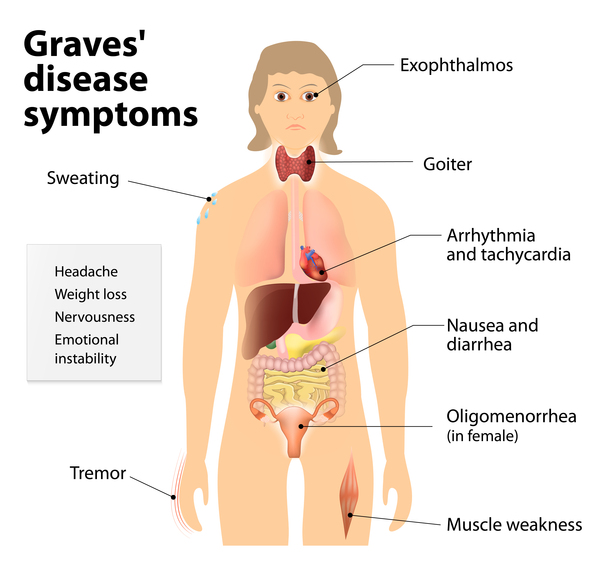The nurse is interviewing a client with possible Graves' disease. Which response would the nurse expect when asking the client about her comfort in cold weather?
"I always need to have a sweater or jacket on."
"I am always warm and sometimes even hot during cold weather."
"I seem to have episodes of hot and cold without regard to what I am wearing."
"My fingers are sometimes cold during the cooler weather."
The Correct Answer is B
Choice A reason: Needing a sweater or jacket is not typical for Graves' disease, which often causes intolerance to heat rather than cold.
Choice B reason: This response is typical for Graves' disease, as hyperthyroidism can increase metabolism, leading to feeling warm or hot even in cold weather.
Choice C reason: While temperature dysregulation can occur, the specific symptom of feeling warm in cold weather is more directly associated with Graves' disease.
Choice D reason: Cold fingers can be a symptom of many conditions, but it is not specifically indicative of Graves' disease.

Nursing Test Bank
Naxlex Comprehensive Predictor Exams
Related Questions
Correct Answer is B
Explanation
Choice A reason: Prolonged vomiting typically leads to metabolic alkalosis due to the loss of gastric acid, which is not consistent with the ABG results showing acidosis.
Choice B reason: COPD can lead to respiratory acidosis, as indicated by the elevated PaCO2 and low pH in the ABG results, making it a likely contributor to these findings.
Choice C reason: Chronic renal failure can lead to metabolic acidosis, but the HCO3 level is within the normal range, which does not support this as the primary condition.
Choice D reason: Anxiety and hyperventilation usually result in respiratory alkalosis due to the excessive exhalation of CO2, which is the opposite of what the ABG results show.
Correct Answer is A
Explanation
Choice A reason: The serum lactate level of 3.9 mmol/L is significantly higher than the normal range of 0.5-2 mmol/L. This is a critical value to report as it indicates a high likelihood of sepsis, which is a life-threatening condition requiring immediate intervention. Elevated lactate levels suggest that the tissues are not adequately oxygenated, a state known as tissue hypoxia, which is a hallmark of sepsis.
Choice B reason: While the vital signs show a slight fever (100°F), the heart rate, respiratory rate, and blood pressure are within normal limits for an adult and do not indicate an immediate life-threatening condition.
Choice C reason: A pulse oximetry reading of 96% on supplemental oxygen is within the acceptable range, indicating adequate oxygen saturation and not a direct sign of sepsis.
Choice D reason: The presence of rhonchi bilaterally suggests airway obstruction due to mucus, which can be associated with pneumonia. However, this finding alone does not carry the same immediate risk of morbidity and mortality as an elevated lactate level indicative of sepsis.
Whether you are a student looking to ace your exams or a practicing nurse seeking to enhance your expertise , our nursing education contents will empower you with the confidence and competence to make a difference in the lives of patients and become a respected leader in the healthcare field.
Visit Naxlex, invest in your future and unlock endless possibilities with our unparalleled nursing education contents today
Report Wrong Answer on the Current Question
Do you disagree with the answer? If yes, what is your expected answer? Explain.
Kindly be descriptive with the issue you are facing.
